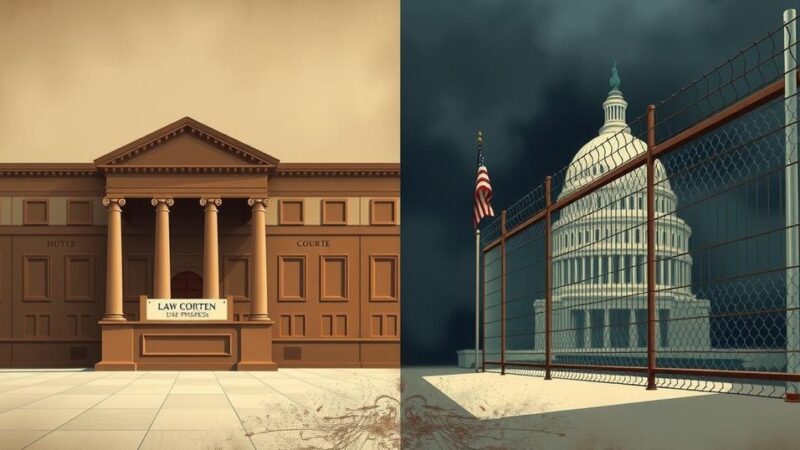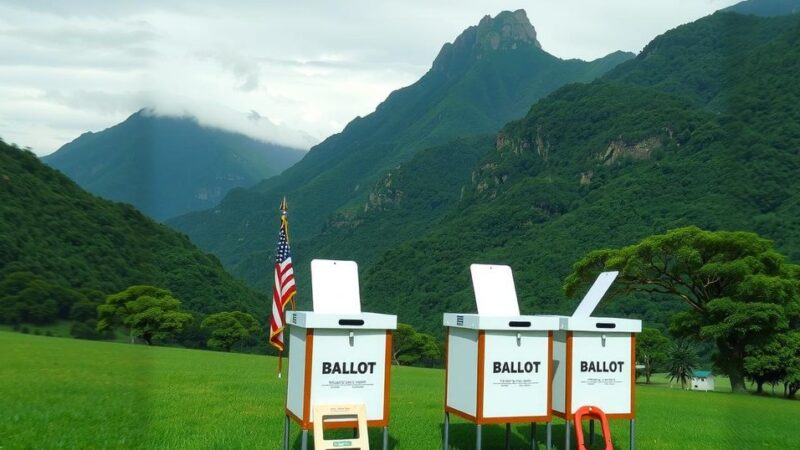Guyana’s Interior Minister Robeson Benn cautioned that residents supporting Venezuela’s planned elections in the disputed Essequibo region will face treason charges. The tensions include recent incidents involving Venezuelan military actions and an appeal by Guyana to the International Court of Justice to stop Venezuela’s elections. This territorial dispute, rooted in historical claims and agreements, continues to escalate following Venezuela’s referendum to annex the region.
Guyana’s Interior Minister, Robeson Benn, issued a stern warning that any resident supporting Venezuela’s upcoming elections in the disputed Essequibo region will face treason charges. He stated, “We know that there are some sleepers here,” referencing Venezuelan President Maduro’s plans to appoint officials for Essequibo, scheduled for May 23rd.
Benn emphasized consequences for individuals supporting these electoral activities, asserting that anyone appointed as a governor could be prosecuted. He acknowledged a relaxed policy regarding cross-border family ties but reiterated that endorsement of the Venezuelan electoral plan would have serious repercussions.
To illustrate the tightening measures, he mentioned that 75 Venezuelan migrants were denied entry recently. Tensions escalated due to a recent Venezuelan naval incursion into Guyanese waters and the shooting of six Guyanese soldiers near the border.
Last week, Guyana approached the International Court of Justice, seeking a ruling to prevent Venezuela’s planned elections in Essequibo. Meanwhile, Diosdado Cabello, Venezuela’s Minister of the Interior and Justice, confirmed plans to elect eight legislators along with a governor during the May elections.
The territorial dispute flared after Venezuela approved a referendum in December 2023 to annex Essequibo, an area predominantly controlled by Guyana since 1966, which is currently under review by the International Court of Justice. Historically, this conflict began with the Paris Arbitration Award of 1899, which awarded sovereignty to British Guiana. Following decades of dispute, Venezuela has maintained that this award was nullified and signed the 1966 Geneva Agreement for resolution, which has not been realized. Guyana remains committed to addressing this issue through the Court, although Venezuela does not acknowledge its authority in this matter.
In summary, Guyana has issued a clear warning against any support for Venezuelan electoral plans in the Essequibo region, indicating potential treason charges. The heightened tensions stem from recent military incidents and unilateral actions from Venezuela regarding the disputed territory. Guyana’s appeal to the International Court of Justice reflects its commitment to resolving the matter legally, while Venezuela’s ongoing claims and electoral actions further complicate the historical dispute.
Original Source: efe.com






